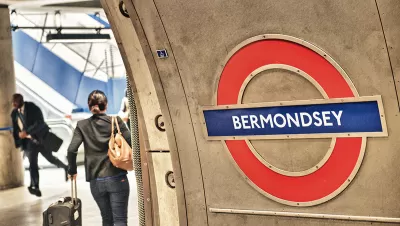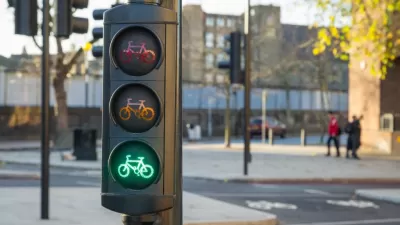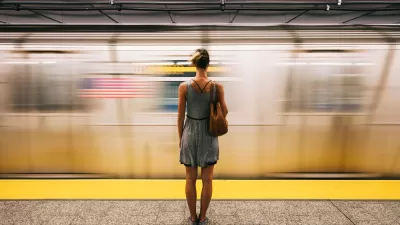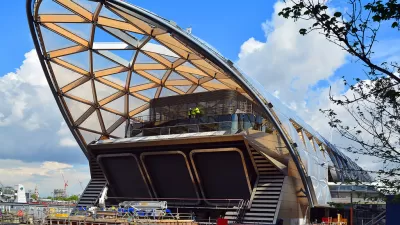Transport for London is forging ahead on several projects to collect and use more rider data. One initiative draws on WiFi connections to map users' paths through the London Underground.

As Zulfikar Abbany writes, the last several decades have seen marked improvements in London's transit network. Data initiatives are one reason why. "It started with ticketing data - things like the Oyster Card, a simple 'tap on, tap off' payment system that has given Transport for London (TfL) masses of data on customer behavior. And they have gone from that to a trial in late 2016 that used WiFi in underground station to monitor the way people move within station, how they make connections, and how that can lead to - or avoid - overcrowding."
Abbany takes comment from Lauren Sager Weinstein, TfL's Chief Data Officer, who is well aware of privacy concerns. According to Weinstein, "We took the principle of data minimization [...] So you only take the data that you need to take. You don't collect more than you need for [your stated] reason. And we were very transparent about it, so customers could opt-out if they didn't want to participate."
In addition to methods like WiFi tracking, TfL maintains an open data policy letting third parties "extend the reach" of the system using certain datasets. The policy has yielded dividends. "A recent study by Deloitte, a financial consultancy, suggests TfL's open data policy was generating annual economic benefits and savings of up to £130 million (145 million euros) for travelers and the authority itself."
FULL STORY: A public transport model built on open data

Alabama: Trump Terminates Settlements for Black Communities Harmed By Raw Sewage
Trump deemed the landmark civil rights agreement “illegal DEI and environmental justice policy.”

Planetizen Federal Action Tracker
A weekly monitor of how Trump’s orders and actions are impacting planners and planning in America.

How Atlanta Built 7,000 Housing Units in 3 Years
The city’s comprehensive, neighborhood-focused housing strategy focuses on identifying properties and land that can be repurposed for housing and encouraging development in underserved neighborhoods.

In Both Crashes and Crime, Public Transportation is Far Safer than Driving
Contrary to popular assumptions, public transportation has far lower crash and crime rates than automobile travel. For safer communities, improve and encourage transit travel.

Report: Zoning Reforms Should Complement Nashville’s Ambitious Transit Plan
Without reform, restrictive zoning codes will limit the impact of the city’s planned transit expansion and could exclude some of the residents who depend on transit the most.

Judge Orders Release of Frozen IRA, IIJA Funding
The decision is a victory for environmental groups who charged that freezing funds for critical infrastructure and disaster response programs caused “real and irreparable harm” to communities.
Urban Design for Planners 1: Software Tools
This six-course series explores essential urban design concepts using open source software and equips planners with the tools they need to participate fully in the urban design process.
Planning for Universal Design
Learn the tools for implementing Universal Design in planning regulations.
Jessamine County Fiscal Court
Caltrans
Institute for Housing and Urban Development Studies (IHS)
City of Grandview
Harvard GSD Executive Education
Toledo-Lucas County Plan Commissions
Salt Lake City
NYU Wagner Graduate School of Public Service





























